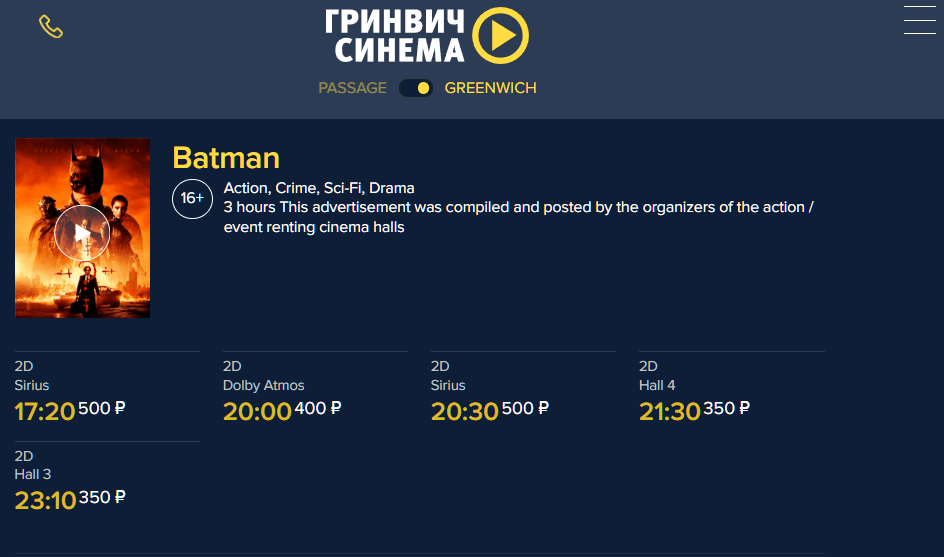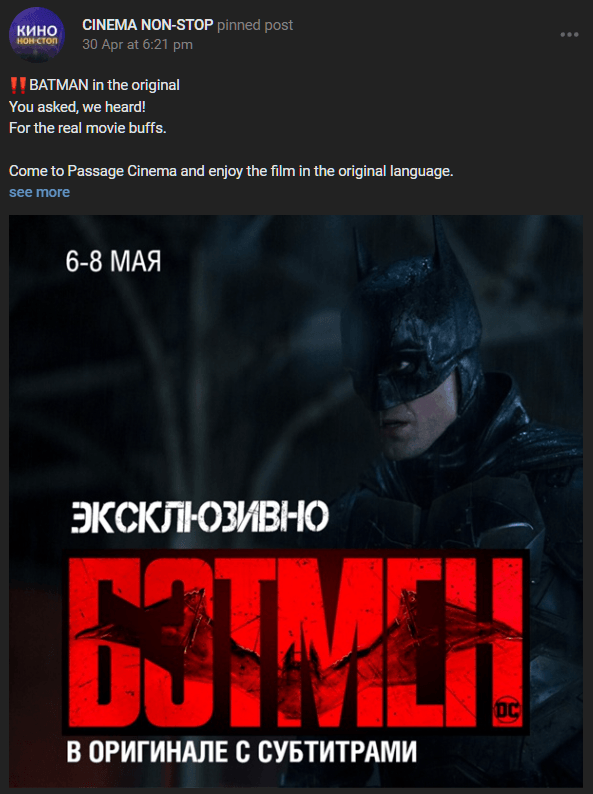-
chevron_right
After $1bn Piracy Loss, Cox Latest ISP to Face DMCA Subpoena Dilemma
news.movim.eu / TorrentFreak · Monday, 1 May, 2023 - 19:31 · 5 minutes
 In the United States, consumer ISPs have been handing over the identities of suspected BitTorrent pirates for years, mostly because a court has compelled them to as part of a copyright infringement lawsuit. It’s not particularly difficult for rightsholders to take this route, but it can be expensive.
In the United States, consumer ISPs have been handing over the identities of suspected BitTorrent pirates for years, mostly because a court has compelled them to as part of a copyright infringement lawsuit. It’s not particularly difficult for rightsholders to take this route, but it can be expensive.
In the early 2000s, the RIAA hoped to cut costs by obtaining the details of Verizon customers via the DMCA subpoena process. That ultimately failed in 2005 when a court found that subpoenas under section 512(h) only apply to ISPs that directly store, cache, or provide links to infringing material.
That decision settled the waters for years but didn’t prevent BMG and anti-piracy partner Rightscorp from trying to identify 30,000 subscribers of ISP CBeyond in 2014. A year later, a court sided with the ISP and rejected calls for a more progressive reading of the law.
“It is the province of Congress, not the courts, to decide whether to rewrite the DMCA in order to make it fit a new and unforeseen internet architecture and accommodate fully the varied permutations of competing interests that are inevitably implicated by such new technology,” the judge wrote .
Congress Not Needed
Even though Congress still hasn’t rewritten the DMCA, movie studios known for tracking down alleged BitTorrent pirates in pursuit of cash settlements are increasingly using the DMCA subpoena system anyway. During 2022 and early 2023, Voltage Pictures, Millenium Funding, LHF Productions, and Capstone Studios obtained DMCA subpoenas targeting customers of CenturyLink (now Lumen).
The first request of 2022 targeted ‘just’ 13 subscribers , the next sought to unmask 63 .
Last month a court clerk’s signature approved the pursuit of another 150 CenturyLink customers and soon after another ISP’s subscribers would begin feeling the heat.
Billion Dollar Headache
Like competitor CenturyLink, Cox Communications declined to take part in the ‘ Six Strikes ‘ anti-piracy initiative in the United States back in 2013. Eventually a more traditional piracy reduction method would resurface.
In 2019, the major recording labels of the RIAA successfully argued that Cox could be held liable for copyright infringements carried out by its customers. A Virginia federal jury found the ISP contributorily and vicariously liable and awarded the labels $1 billion in damages .
One billion dollars is a huge amount but Cox was also concerned about other things ; being forced to disconnect subscribers “based on a few isolated and potentially inaccurate allegations” and concerns that the interests of rightsholders were being elevated above those of “ordinary, and often blameless, people who depend on the internet.”
To this background of liability for subscribers’ infringements, while defending the public against potentially baseless claims, Cox Communications now finds itself in the middle of another piracy dilemma.
Another Controversial DMCA Subpoena
The same movie studios that have been targeting CenturyLink subscribers for more than a year have decided that Cox subscribers should receive similar treatment.
Last month, Voltage Holdings, Millennium Funding, and Capstone Studios, filed an application for a DMCA subpoena to compel Cox Communications and CoxCom LLC to hand over the details of allegedly infringing customers.
Court documents list 41 IP addresses (four of which are duplcates) alleging that corresponding subscribers can be found in Virginia, Louisiana, Nevada, Arizona, Rhode Island, Oklahoma, California, Connecticut and Kansas. The majority stand accused of downloading and/or sharing the 2022 movie, ‘Fall.’
Most of the alleged pirates are linked with copies of the movie labeled [YTS.MX], a reference to YTS, the most popular torrent site on the planet . Millenium Media was one of the companies behind a lawsuit and subsequent $1m settlement with YTS back in 2020, which didn’t require the site to shut down.
Sign on the Line
Filed in a Hawaii district court, the application for DMCA subpoena follows a now-familiar format. The application notes that since all required paperwork is in order, it’s the clerk’s responsibility alone to act as the law requires.
“512(h)(4) provides that the Clerk, not a Judge should issue and sign the proposed subpoena,” it reads.
In common with the subpoenas against CenturyLink, the Cox application describes in detail how courts have ruled that DMCA subpoenas don’t apply to conduit ISPs. However, the application says that given developments in recent years (specifically, a lawsuit BMG filed against Cox itself ), there’s a belief that the Tenth Circuit will eventually find that 512(h) does apply to conduit ISPs after all.
“For these reasons, the undersigned request that the Clerk of the Court expeditiously issue and sign the proposed subpoena and return it to the undersigned…to be served on the service provider,” it concludes.
The DMCA subpoena application was signed by the clerk the very same day so, in all likelihood, Cox has already been served. Cox hasn’t filed a motion to quash as far as we know, which may suggest it intends to recognize the validity of the subpoena by handing over its subscribers’ details to the movie studios.
512(h) is Ambiguous, Concentrate on the Clerk
In a 2021 submission to the Copyright Office on the CASE Act, the powerful Copyright Alliance noted a submission by Verizon which called for the Office to “create guidance for its Claims Attorneys that any Section 512 (h) subpoenas directed to a Section 512 (a) mere conduit service provider must be issued by a federal judge and not by a clerk of a court.”
Describing the issue as “highly contested” and 512(h) itself as “ambiguous” according to the Copyright Office, the Copyright Alliance pointed out that it isn’t the Copyright Claims Board’s job to get involved.
“In any event, it is the clerk of a federal district court – not the CCB – who will determine whether to issue a subpoena under Section 512(h),” the Alliance advised.
Presumably this is exactly what Congress intended, or maybe not. Either way, ISPs with repeat infringer lawsuits pending seem unlikely to rock the boat in a rush to find out.
ISPs on firmer footing probably won’t find themselves targeted in future applications but that won’t stop them being filed, most likely in increasing numbers.
The DMCA subpoena application and IP list can be found here ( 1 , 2 , pdf)
From: TF , for the latest news on copyright battles, piracy and more.
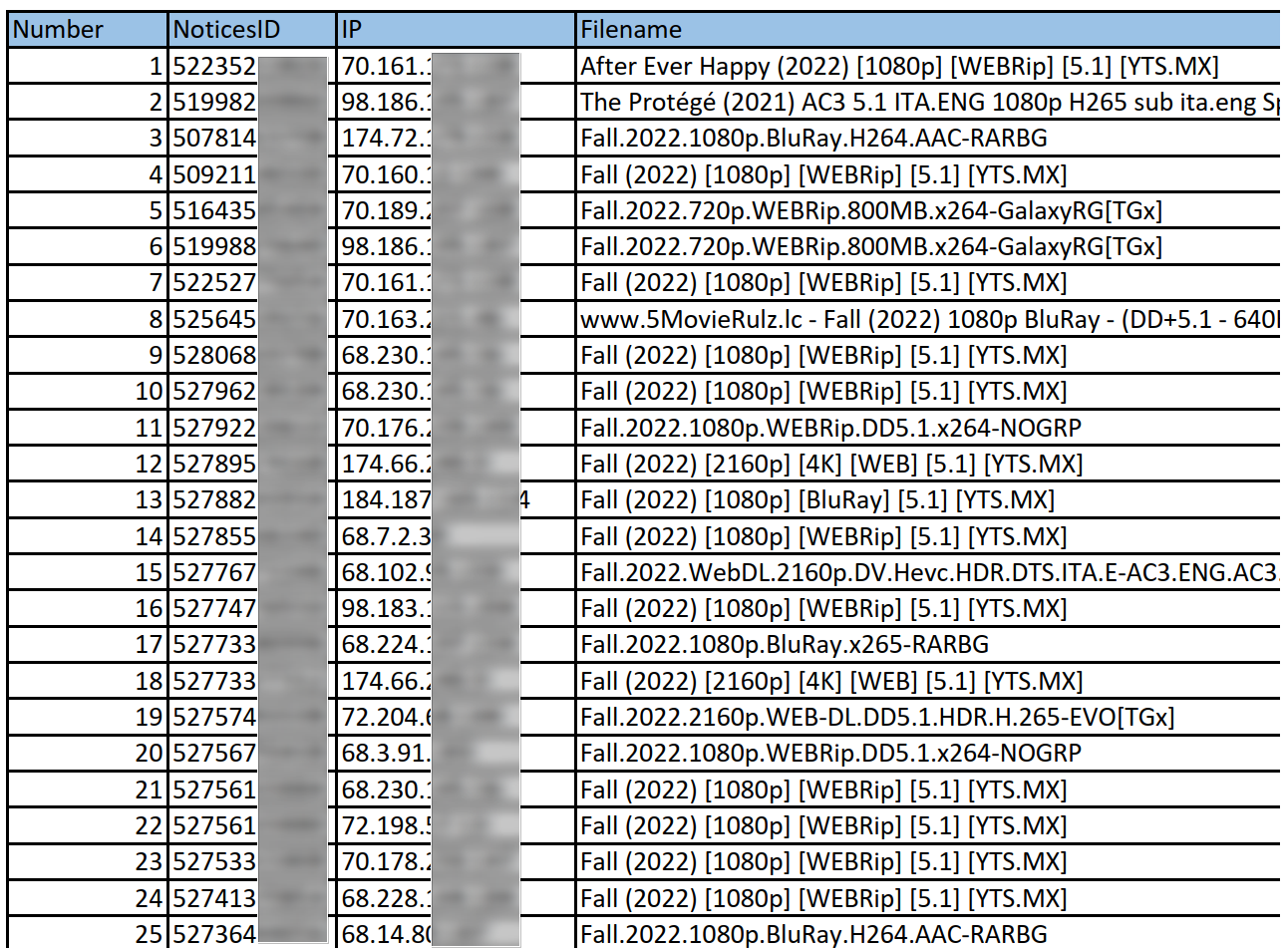



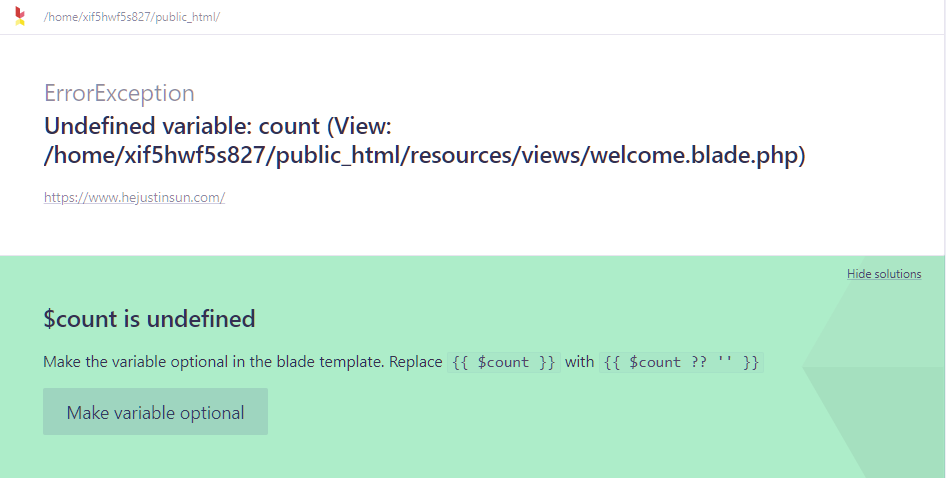


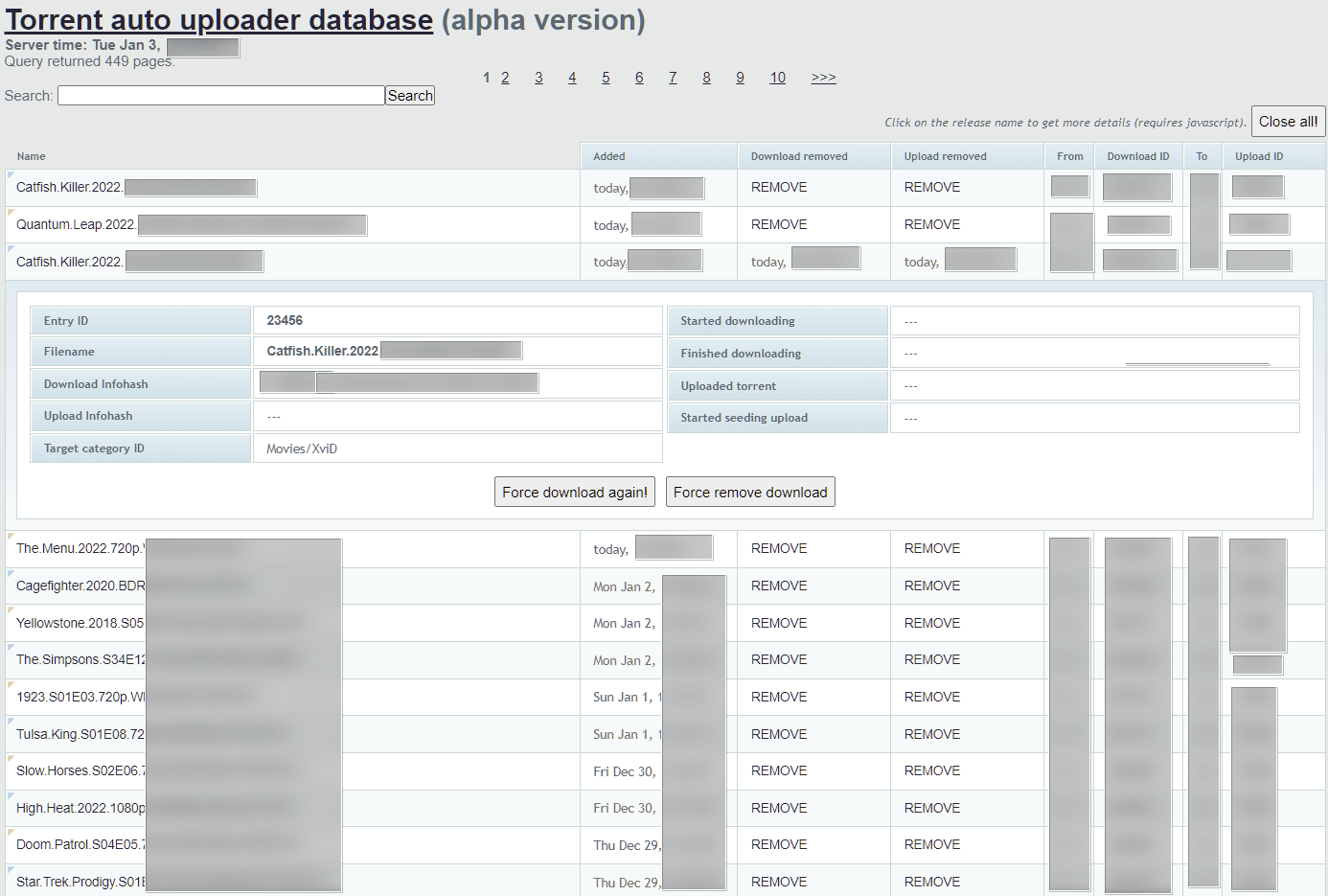
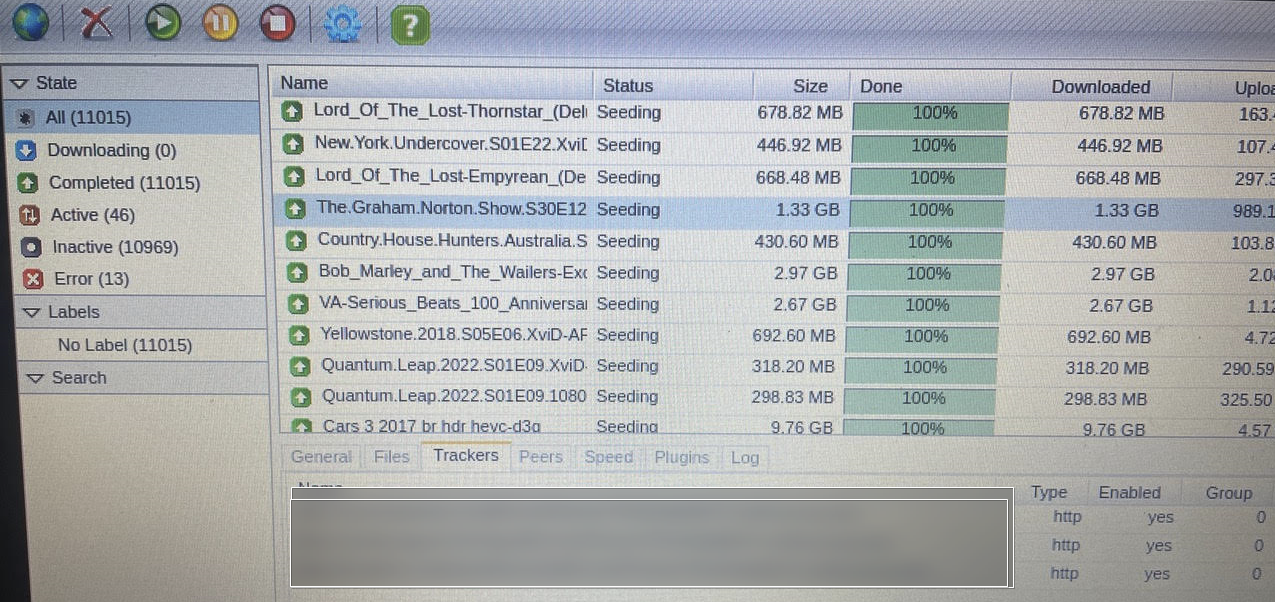
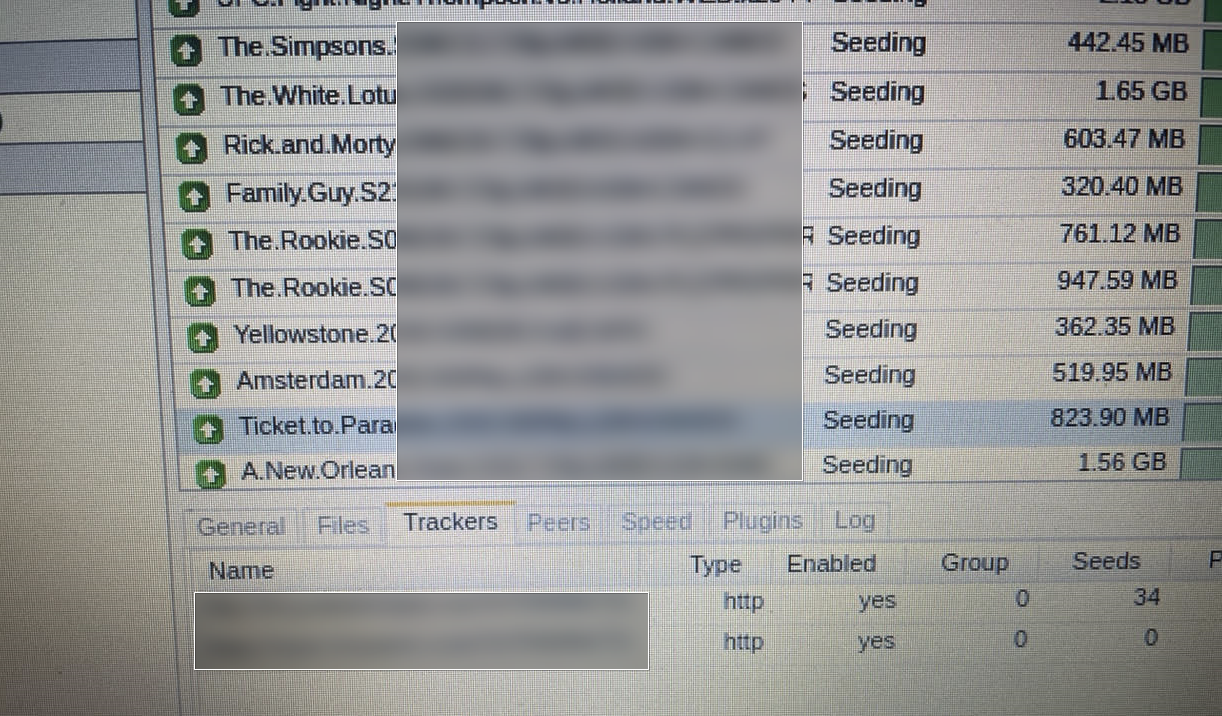

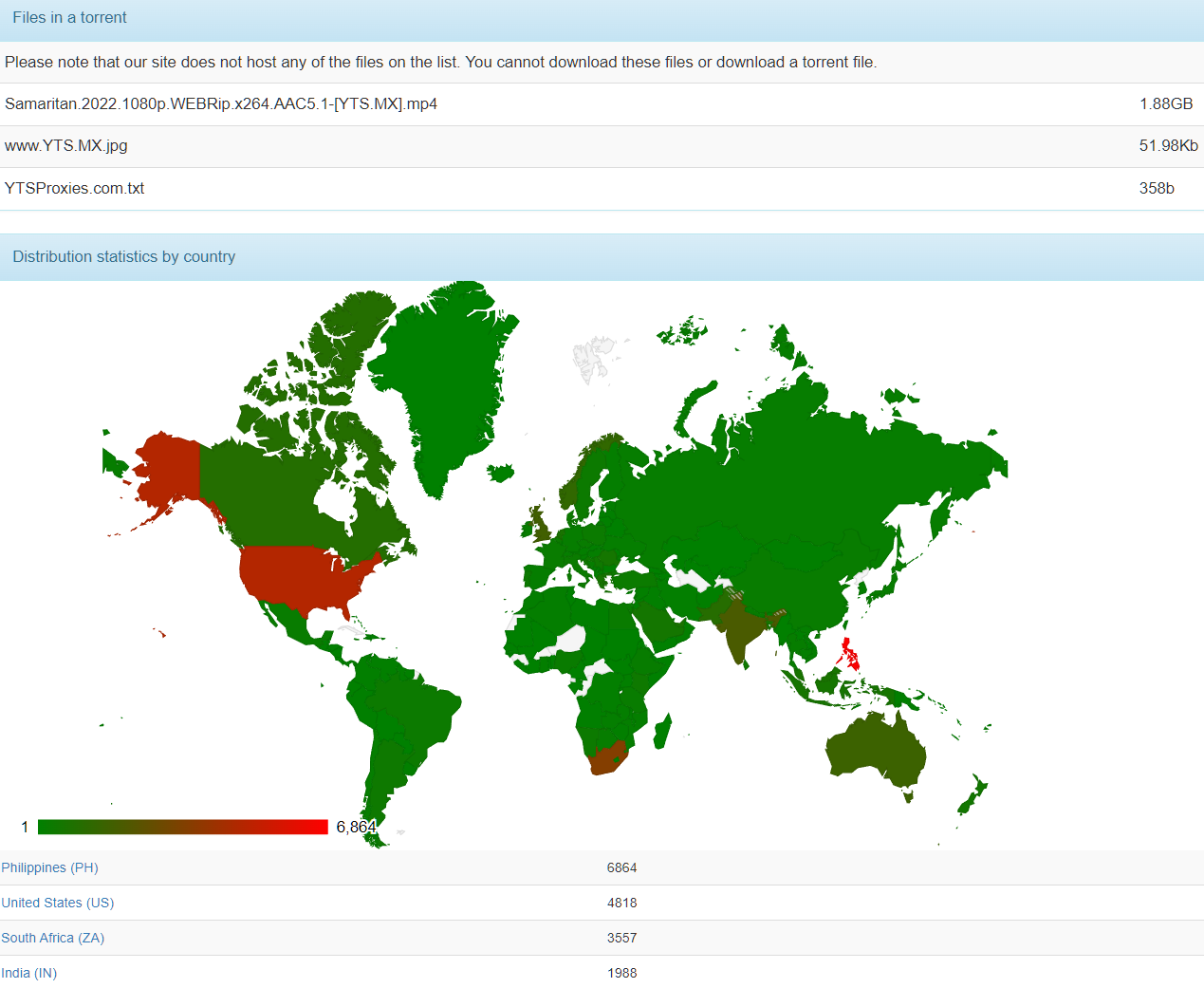
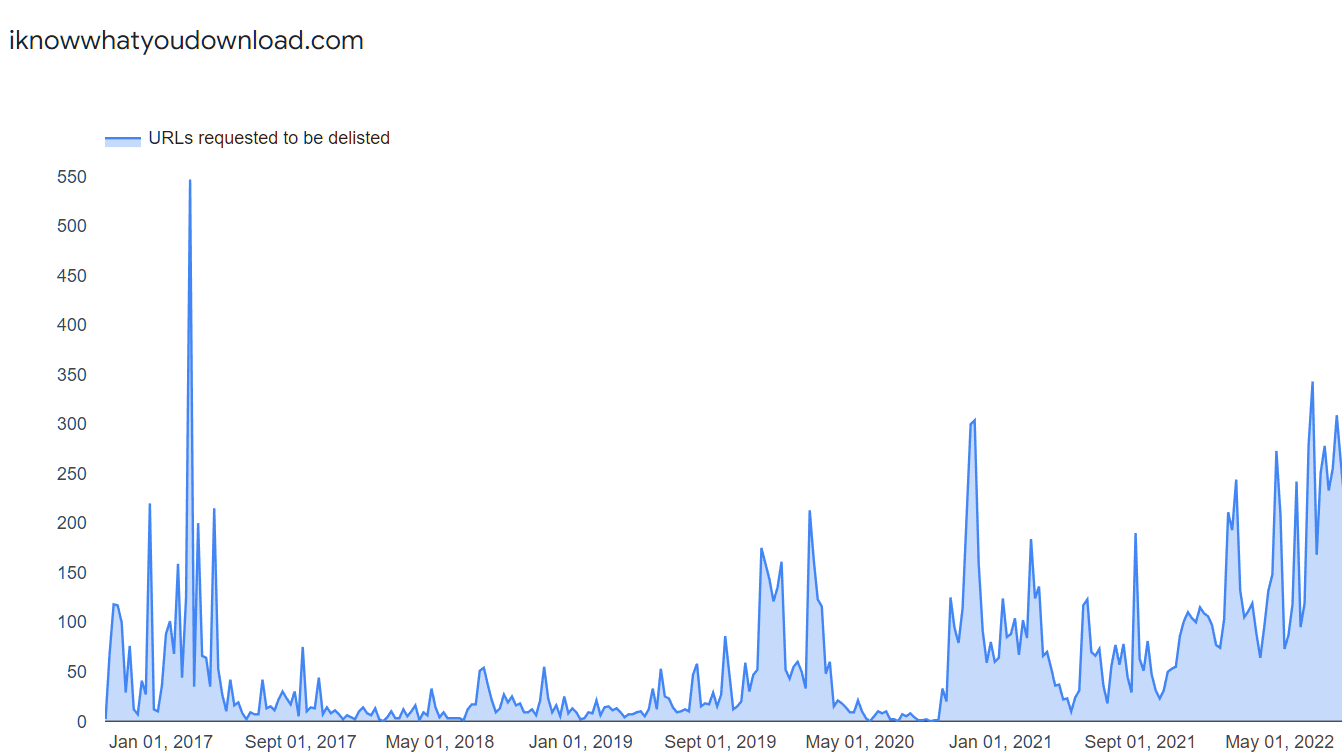
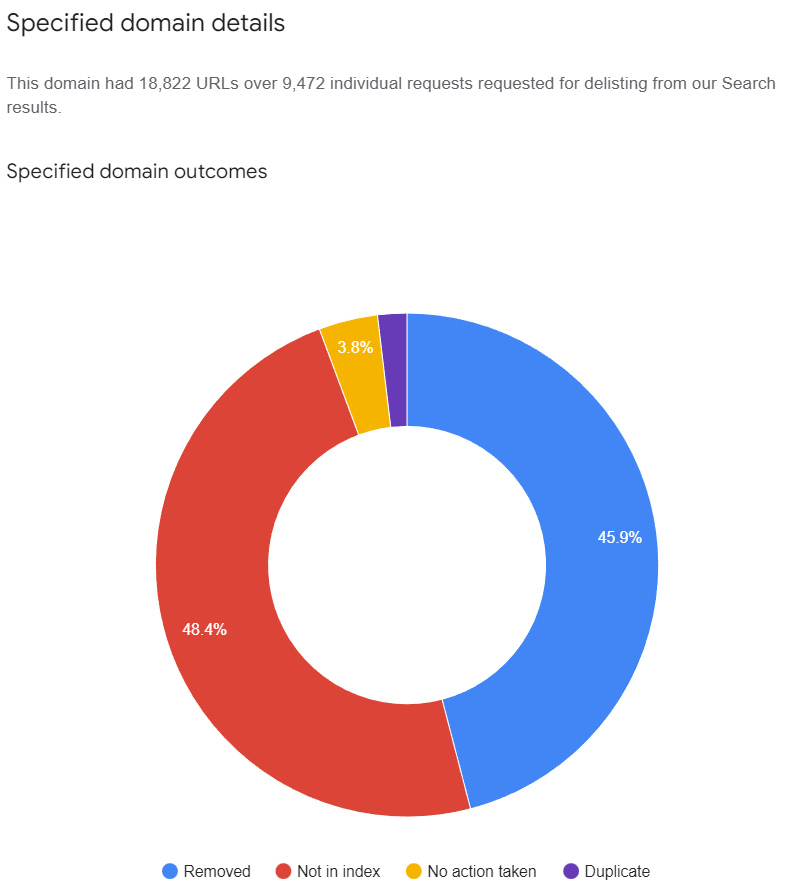




 Trackers are a crucial part of the BitTorrent infrastructure, making it easier for downloaders and uploaders to connect to each other.
Trackers are a crucial part of the BitTorrent infrastructure, making it easier for downloaders and uploaders to connect to each other.


